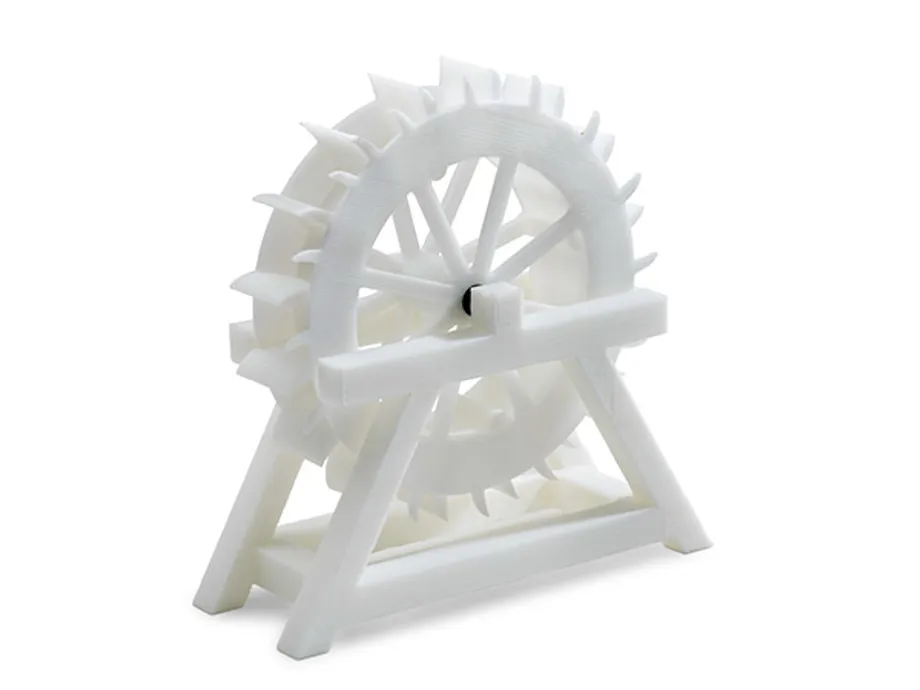Hydraulics
Hydraulics is a topic in applied science and engineering dealing with the mechanical properties of liquids or fluids. At a very basic level, hydraulics is the liquid version of pneumatics.
Fluid mechanics provides the theoretical foundation for hydraulics, which focuses on the engineering uses of fluid properties. In fluid power, hydraulics is used for the generation, control and transmission of power by the use of pressurized liquids.
Hydraulic topics cover concepts such as pipe flow, dam design, fluidics and fluid control circuitry, pumps, turbines, hydropower, computational fluid dynamics, flow measurement, river channel behaviour and erosion.
3D print of water wheel
This is a 3D print of a water wheel, a machine used for converting the energy of free-flowing or falling water into useful forms of power, often in a watermill. A water wheel consists of a large wooden or metal wheel, with a number of blades or buckets arranged on the outside rim forming the driving surface.
Most commonly the wheel is mounted vertically on a horizontal axle, but the wheel can be mounted horizontally on a vertical shaft. Vertical wheels can transmit power either through the axle or via a ring gear and typically drive belts or gears.
Donated by Denford

